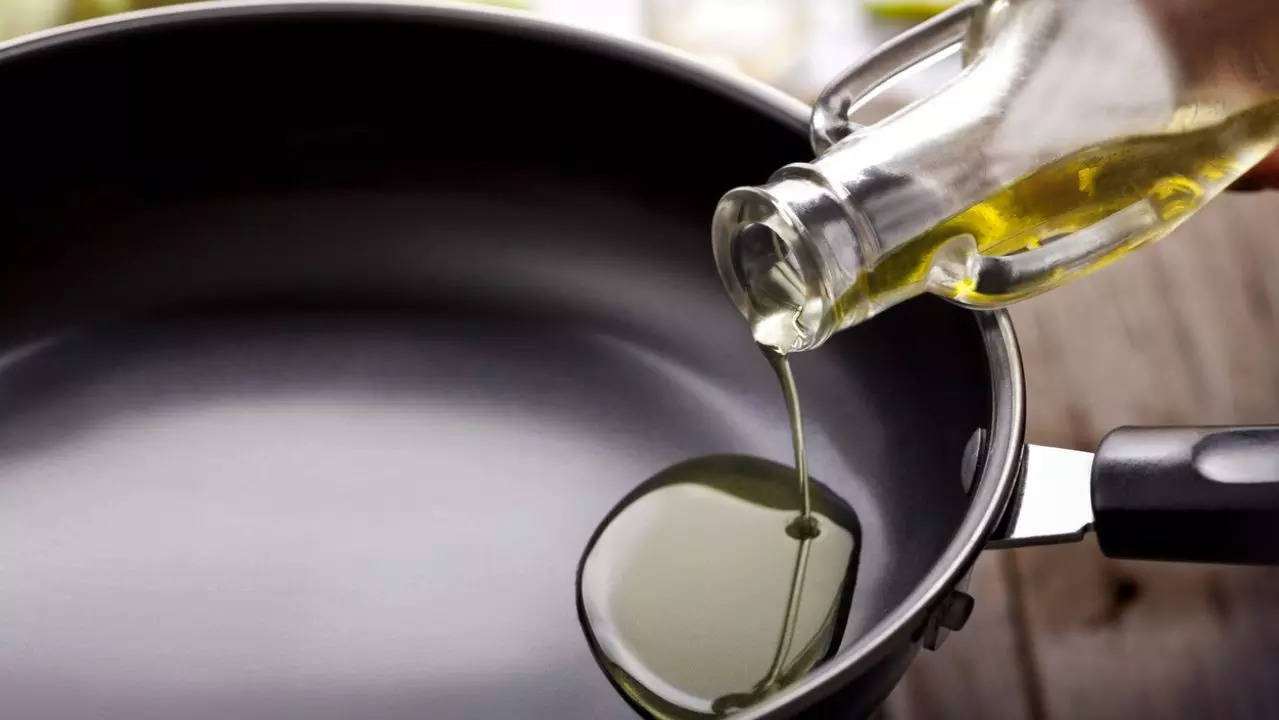Cooking oil
could be fuelling
colon cancer
cases among youth, found a recent study, funded by the US government and published in the medical journal Gut. Colon cancer tumours in the study participants were found to be loaded with tiny greasy substances formed during metabolic breakdown of seeds oils.
It has been found that eating foods high in sunflower, canola, corn, and grapeseed could lead to inflammation in the body which may develop cancer in the colon. Chronic inflammation is also behind a range of chronic conditions.
The study has also highlighted the need to cook food in a healthy way to minimise
cancer risk
.
Here are best ways to use cooking oil
Select the right oil
It is imperative to go for cooking oils that are stable at high temperatures and have mono-unsaturated fats that are heart healthy. Extra-virgin olive oil is rich in antioxidants apart from monounsaturated fats and is ideal for low to medium-heat cooking or as a dressing. Avocado oil is also suitable for high-heat cooking methods like frying. Algae oil is a plant-based source of omega-3 fatty acids, beneficial for reducing inflammation and supporting heart health. It has a high smoke point and neutral taste, making it suitable for cooking.
Consider smoke point
Overheating oils beyond their smoke point can make the fat in them to break down and release free radicals and a substance called acrolein, the chemical that gives burnt foods an acrid flavor and aroma. It is important to go for oils with a high smoke point in case of frying. For example, avocado oil has a high smoke point which makes it suitable for frying. Cold-pressed oils have lower smoke points and should be avoided for reheating. Oils with medium heat smoke points range from 350°F (177°C) to 400°F (204°C). Hazelnut oil, grapeseed oil, refined sesame oils are suitable for sauteing, pan-frying, and baking. On the other hand coconut oil, unrefined sesame oil, unrefined peanut oil must be used at lower temperatures or as salad dressing.
Use them moderately
Even when you choose a healthy cooking oil with the right amount of healthy fats and prepare your food in a healthy way, it is advised to use them moderately as even healthier oils are calorie-dense. Use them sparingly can help maintain a balanced diet. Incorporating a variety of oils can provide a range of beneficial fatty acids.
Diversify oil choices
Incorporate a variety of oils to benefit from different fatty acid profiles. Health experts recommend using at least two different types of cooking oils on a daily basis to get a balanced provision of fatty acids. For example, using sesame oil can add a distinct flavor and provide beneficial polyunsaturated fats.
Store them right
Storing oils in cool and dark places can help prevent their oxidation and rancidity, the factors that may negatively impact your health.
The right cooking method
Avoid deep frying and go for cooking methods that require less oil, such as grilling, steaming, sauteing or using air fryers, to reduce overall fat intake.
Worst ways to use cooking oil
Overheating them
Cooking at a high flame or over heating oils beyond their smoke could lead to production of carcinogens that can increase your risk of cancer. For instance, unrefined oils like flaxseed oil have low smoke points and are unsuitable for cooking.
Reusing and reheating oils
It is important to not reuse oil more than 2-3 times or if its appearance changes or it starts smelling rancid. As per USDA, if the oil is clouded or if the oil starts to foam or has a foul odor, taste, or smell, discard it.
Reheating oil can create harmful byproducts like Total Polar Compounds (TPC), trans fats free radicals which can cause inflammation, and aldehydes.
Choosing oils high in saturated and trans fats
Oils like palm oil and coconut oil are high in saturated fats, which can raise LDL cholesterol levels. Limiting their use is advisable. Taking 7-12 grams daily for up to 6 months is a safe quantity.
Using highly processed vegetable oils
Oils such as soybean, corn, and canola oil are often highly processed and may contain unhealthy trans fats. Some studies suggest they can contribute to inflammation and other health issues.
5 Ayurvedic herbs that cut down cancer risk
I’m Manas Ranjan Sahoo: Founder of “Webtirety Software”. I’m a Full-time Software Professional and an aspiring entrepreneur, dedicated to growing this platform as large as possible. I love to Write Blogs on Software, Mobile applications, Web Technology, eCommerce, SEO, and about My experience with Life.





